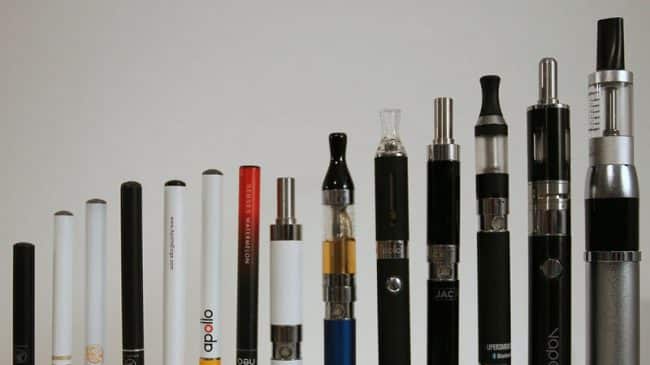Federal News Round-Up
Congressional leaders reached a budget compromise on an omnibus revenue bill that allowed them to avoid a government shutdown but excluded language that would have changed the predicate date applying to FDA regulation of vapor products. Democratic leadership identified the change to the predicate date for vapor products as a “poison pill” and vowed to oppose any budget deal and force a government shutdown if the provision was included.
On May 3, the FDA announced that it will defer enforcement of all future compliance deadlines under the rules published in May 2016 affecting e-cigarettes and cigars by three months. The communication from the Center for Tobacco Products specifically stated the following: “This extension will allow new leadership at the FDA and the Department of Health and Human Services additional time to more fully consider issues raised by the final rule that are now the subject of multiple lawsuits in federal court.” Stay tuned.
President Trump’s nominee to head the FDA Scott Gottlieb received needed committee approval to head the agency and awaits consideration before the full Senate.
Republican Congressman Duncan Hunter of California introduced legislation that would remove vapor products from the FDA’s tobacco regulations and set up a separate regulatory regime for vapor products.
Hartland, a small town in Wisconsin, held hearings and heard testimony on a legal theory that proponents argue could apply to the FDA regulation of e-cigarettes and allow them to challenge the regulations for failure to coordinate with local governments in creating the legislation. Hartland is home to one of the nation’s first and largest e-liquid manufacturers, a company that sells products in all 50 states and 120 countries around the world.
State News Round-Up
This week, 35 state legislatures are in session, actively meeting. The Indiana legislature passed and Governor Eric Holcomb signed legislation which amended Indiana’s controversial vaping law that was found unconstitutional by the U.S. Court of Appeals for the Seventh Circuit.
New York’s Senate and Assembly Health Committees both respectively approved legislation that would bring vapor products within the state’s Clean Indoor Air Act, banning their use anywhere cigarette smoking is banned. The bills now head to the full Senate and Assembly for consideration.
New York’s Senate Health Committee approved legislation that would increase the age of purchase for tobacco products (including non-tobacco vapor products) from 18 to 21 and the bill was referred to the Senate Finance Committee.
New York City’s Health Committee took testimony on four bills that among other things would increase minimum pricing for cigarettes, apply minimum pricing to smokeless tobacco, require licensing for vapor shops and prohibit new vapor shops from opening in the city and ban pharmacies from selling vapor products. No action was taken in Committee at the time of the hearing.
Texas legislation to increase the age of purchase for tobacco products and vapor products from 18 to 21 passed the House Public Health Committee and was referred to the full House for consideration.
Vermont legislation that would increase the age of purchase for tobacco products including vapor products was defeated on a 16-13 vote in the Vermont Senate.
Science and Harm Reduction
The California Department of Public Health has been conducting air sampling and personal exposure monitoring in the state’s vape shops. The results in one of the vape shops examined appears to show minimal risks, to say the least, from secondhand vapor.
Regulation
Competitive Enterprise Institute Fellow Michelle Minton argues the failure of Congress to change the predicate date on Monday was a “dark day for science-based regulation and anyone who wants to see fewer Americans die from tobacco-related diseases.”
Taxation
Indiana legislation that would have created a new tax on vapor products failed upon adjournment of the legislature.
Nevada’s Assembly Tax Committee approved legislation that would remove vapor products from the state’s 30% other tobacco products tax and instead impose a tax of 5 cents per milliliter. The bill was referred to the full Assembly for consideration.
Ohio Governor John Kasich’s proposal to increase the other tobacco products tax from 17% to 69% and create a new 69% wholesale tax on vapor products was removed from Kasich’s budget in Committee. The tax remains a possibility until a final budget is passed and the Legislature adjourns.
Pennsylvania’s Senate Finance Committee approved legislation that would eliminate the controversial 40 percent wholesale tax on vapor products. The bill was referred to the full Senate for consideration.
What’s Coming Up?
The DC law firm of Keller and Heckman LLP is hosting a complimentary webinar on deeming regulation compliance for vapor businesses including FDA registration and product listing, health department submissions and ingredient reporting for E-liquids and vapor devices on Tuesday, May 9. Registration is required.
E-Cigarette Summit: Science, Regulation, and Public Health will be in Washington, DC, on May 8.
Tobacco Merchants Association Annual Meeting, Chantilly, Virginia, May 10th.-12th.
The Consumer Choice Center is holding its Canadian launch event in Ottawa May 16.
Quotable Quotes
“The Cole-Bishop bill would help to put a stop to the abstinence-only approach that federal lawmakers and regulators have taken for far too long with regard to smoking cessation,”- Carrie Wade, Harm Reduction Policy Director, R Street Institute.
Additional Resources
The Proposed Tobacco Product Standard for NNN Level in Smokeless Tobacco Should Be Withdrawn
The World Health Organization’s Opposition to Tobacco Harm Reduction: A Threat to Public Health?
The Vapor Revolution: How Bottom-Up Innovation Is Saving Lives
Reason’s Research and Analysis of Nicotine and Vapor Issues

